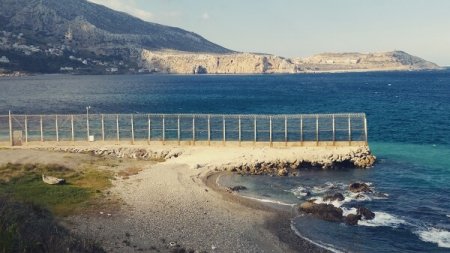
200 unaccompanied children are about to be transferred to the mainland after an agreement was reached between the Ministry of Social Rights and autonomous regions but hundreds of unaccompanied children remain in cramped conditions in Ceuta. 7,500 of the people who entered Ceuta last week have already been returned to Morocco. At least three young Moroccans have died in and on their way to Ceuta in the past two weeks. More than 30 people are currently feared in distress in the Atlantic Sea and about 100 people, including several children, have been rescued close to Gran Canaria.
The Spanish Ministry of Social Rights reached an agreement with a number of autonomous regions for the transfer of 200 unaccompanied children from Ceuta to the mainland. However, this only concerns children who arrived before last week’s events. According to Spanish officials about 7,500 out of the estimated 8,000-10,000 people who crossed into Ceuta between 17-19 May have already been returned to Morocco. The returns without prior assessments of potential protection needs has been met with critique by human rights defenders.
Meanwhile, 800 children were crammed into industrial warehouses to undergo a ten-day quarantine. Some had to sleep on the floor due to a lack of beds and food is reportedly scarce. Many more children are sleeping rough across the enclave. While most unaccompanied children are in their teenage years, the group also includes very young children. “It’s important to understand that we’re seeing children that are much younger than the usual — children of seven, eight, nine years old,” commented Ione Belarra, Minister of Social Rights, on the current situation. “We’re working to address the issue of children who have come alone.”
A hotline for relatives to reunite children with their families was flooded with calls after it was launched and police sources said that around 100 children have been returned to relatives waiting for them on the Moroccan side of the fence. However, it remains unclear how these returns have been carried out. Following reports of children being forced to return to Morocco, Amnesty International emphasised that Spanish authorities “must ensure that the best interests of the child are protected in all cases and that these young people must be able — if appropriate — to request international protection.” The Ministry of Social Rights estimates that among the children who arrived in Ceuta last week, about 200 want to stay in Spain — equalling the reception capacity cleared with the planned transferrals to other regions of Spain.
On Saturday, a young Moroccan died in hospital after falling from a height of 10 meters in the port of Ceuta where he tried to enter a ship sailing to the peninsula, a strategy also widespread in Melilla, the other Spanish enclave sharing a border with Morocco. Reports of several violent incidents of migrants being threatened by locals have circulated and at least one perpetrator was identified by police. After being beaten up with a baseball bat in Ceuta, a young Moroccan man was admitted to hospital. Meanwhile, the number of recovered bodies of people who drowned during the attempt to reach Ceuta by swimming has increased to two.
SOURCE: ECRE







